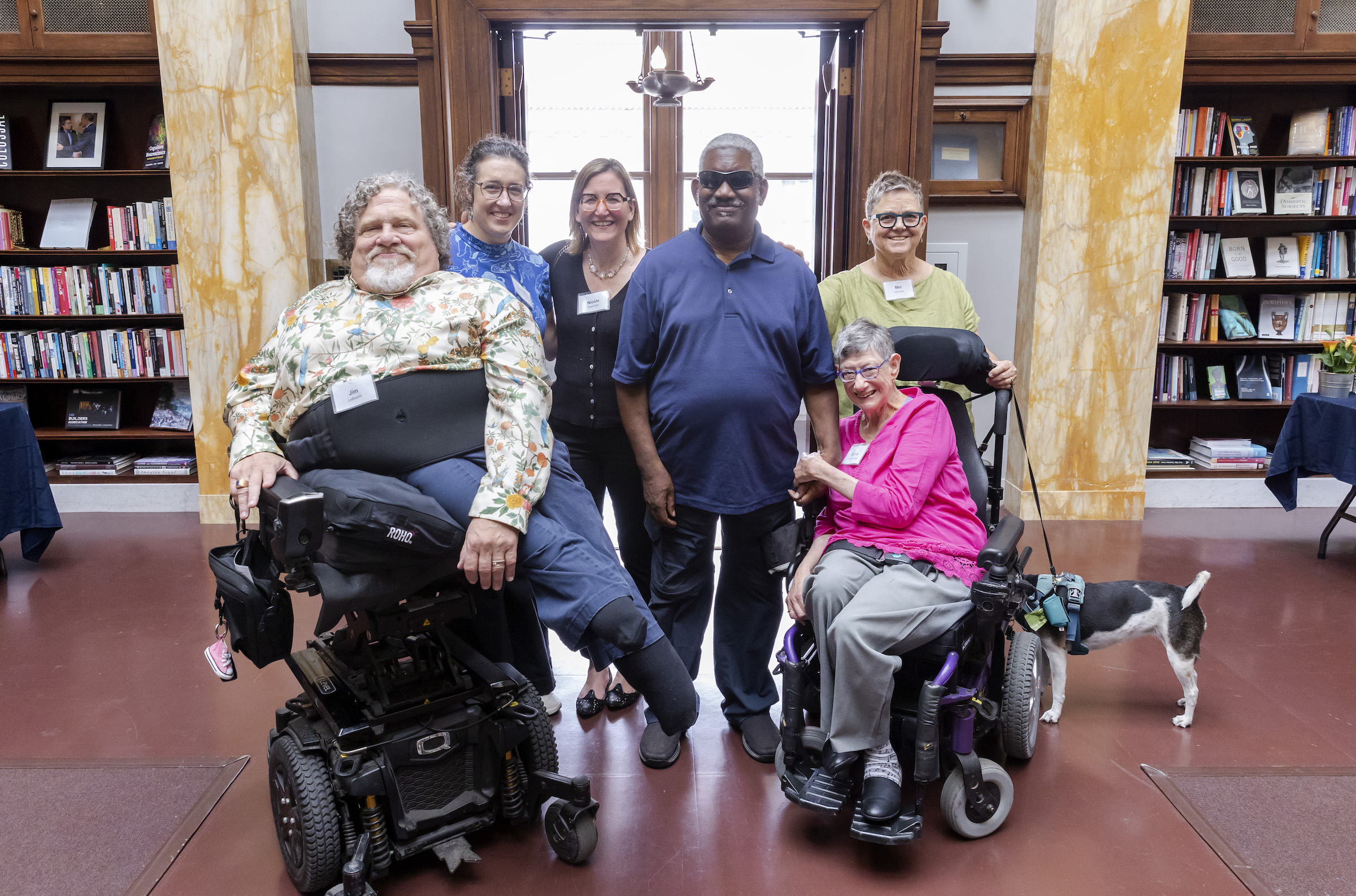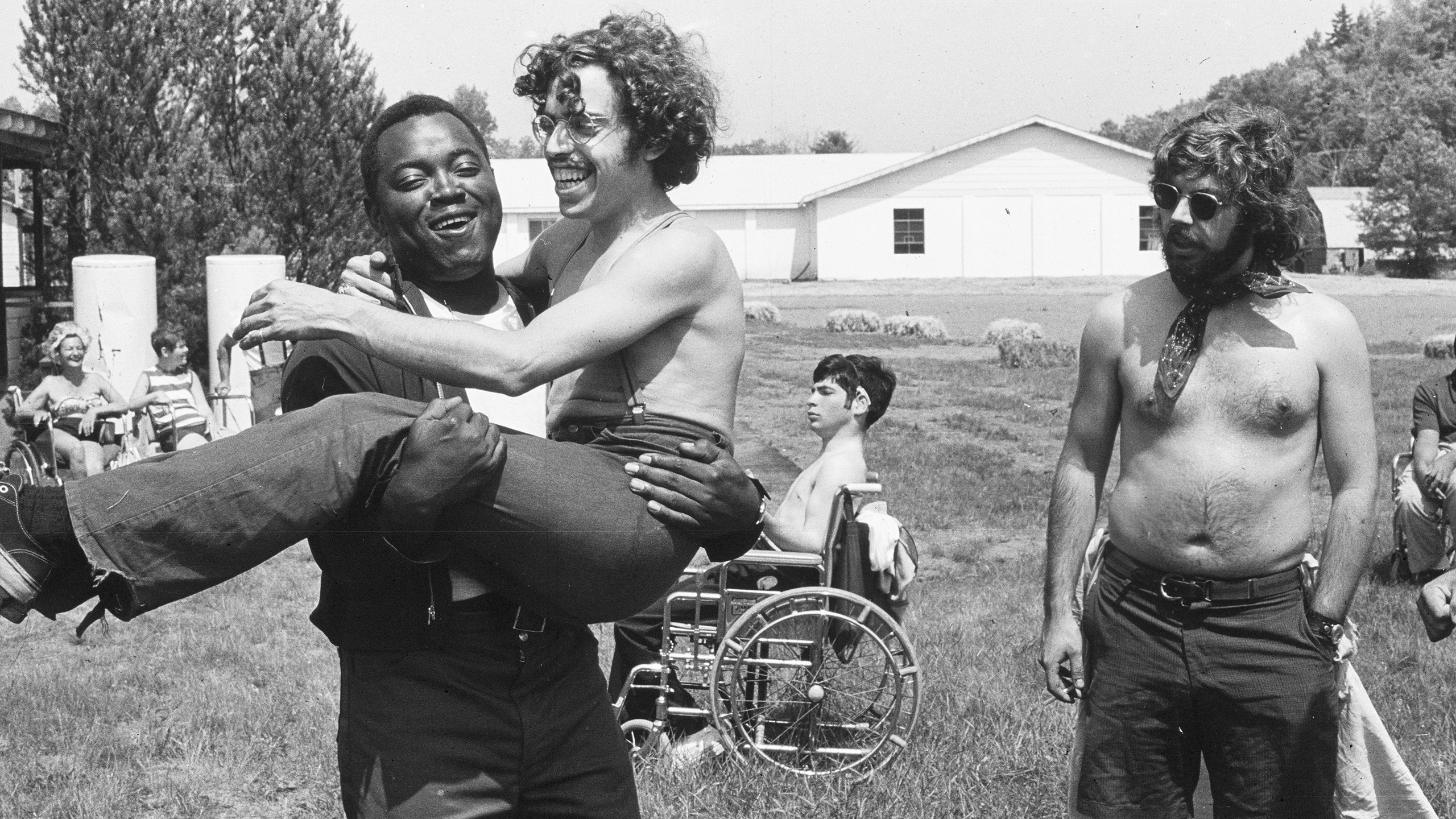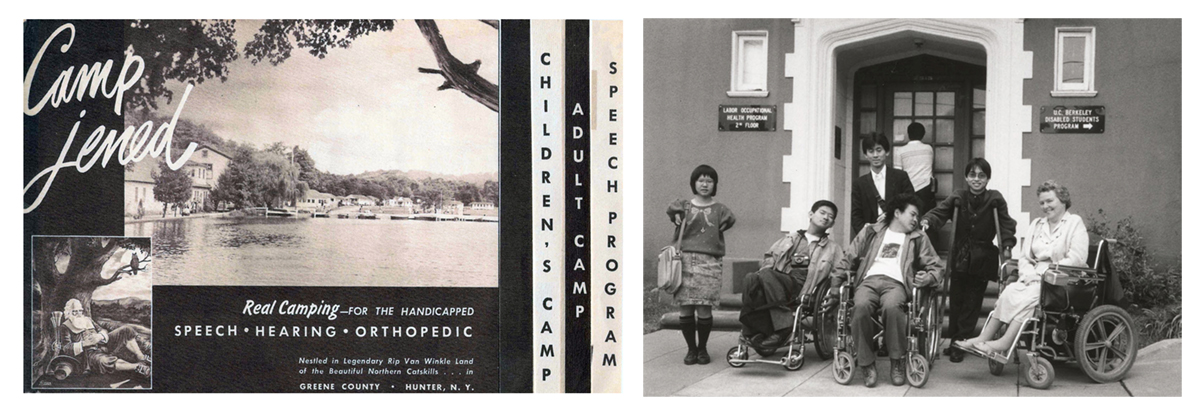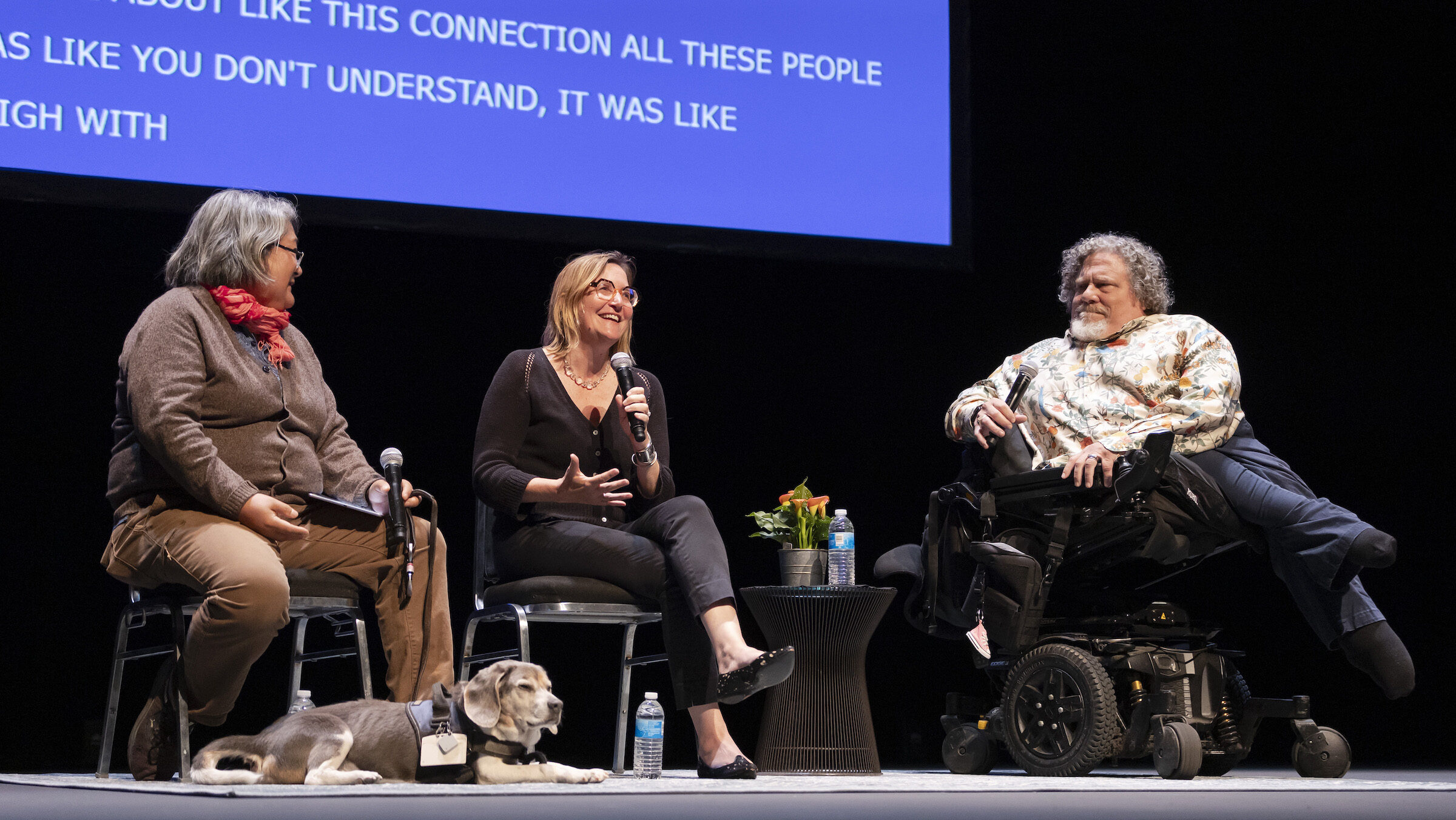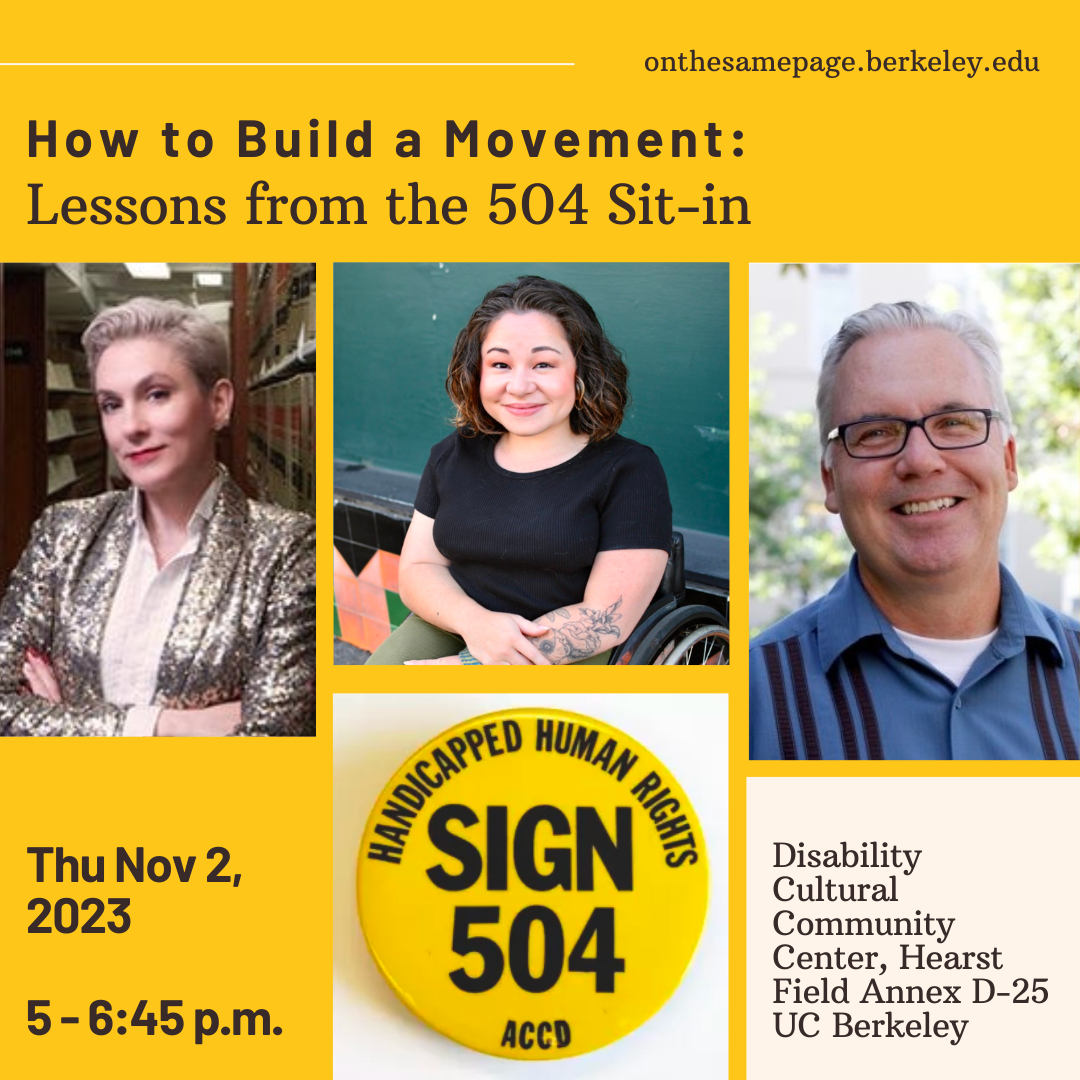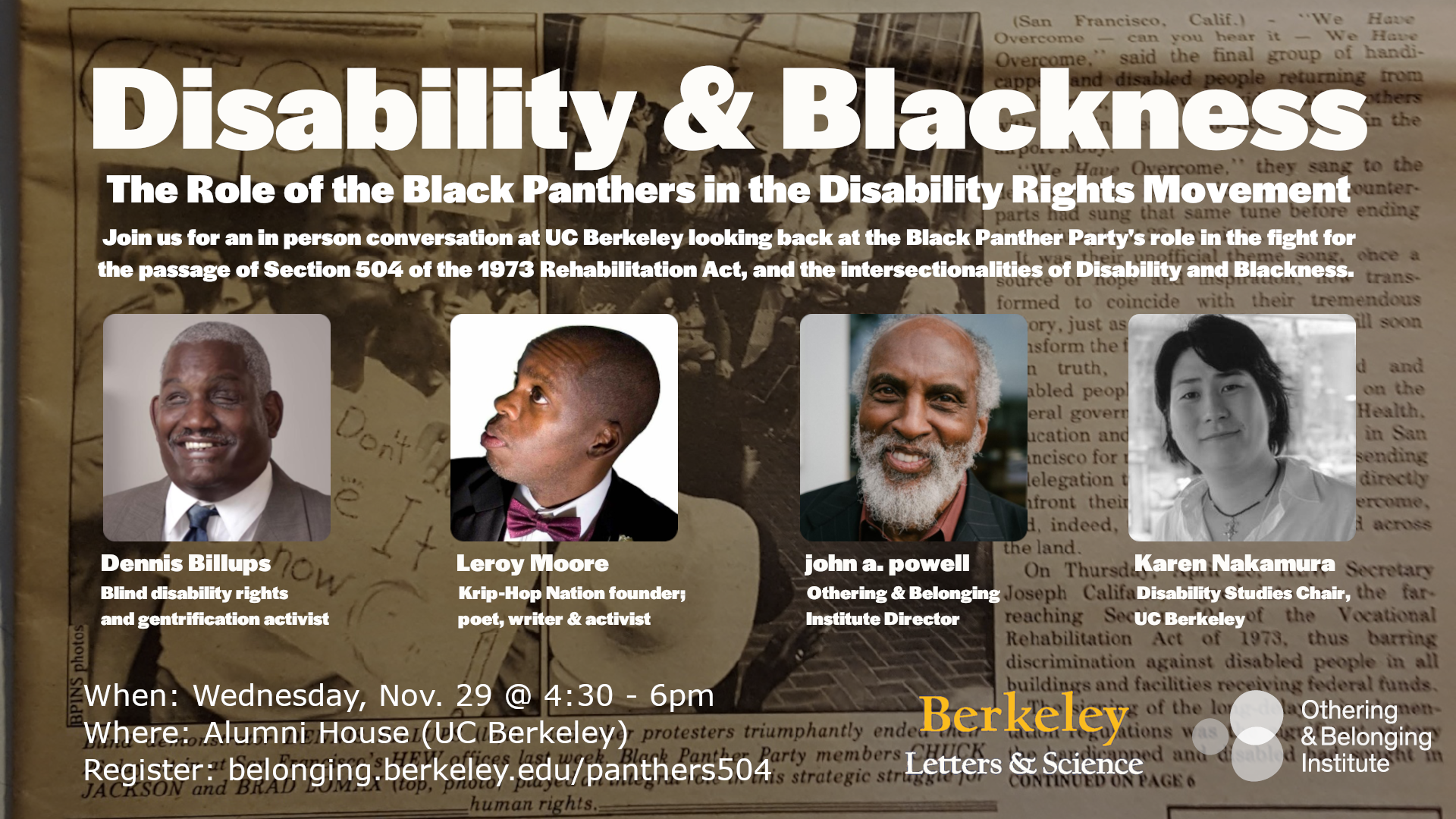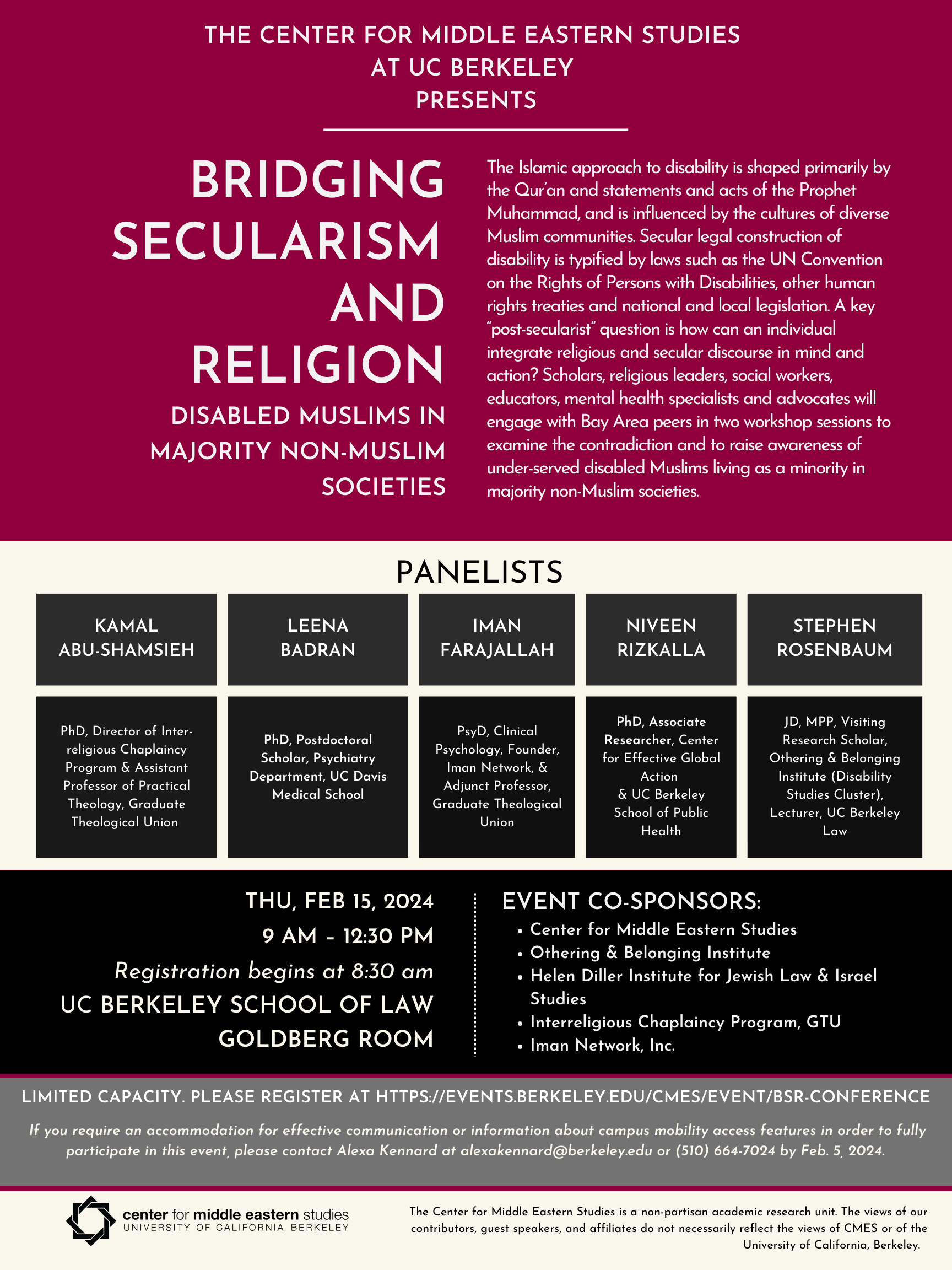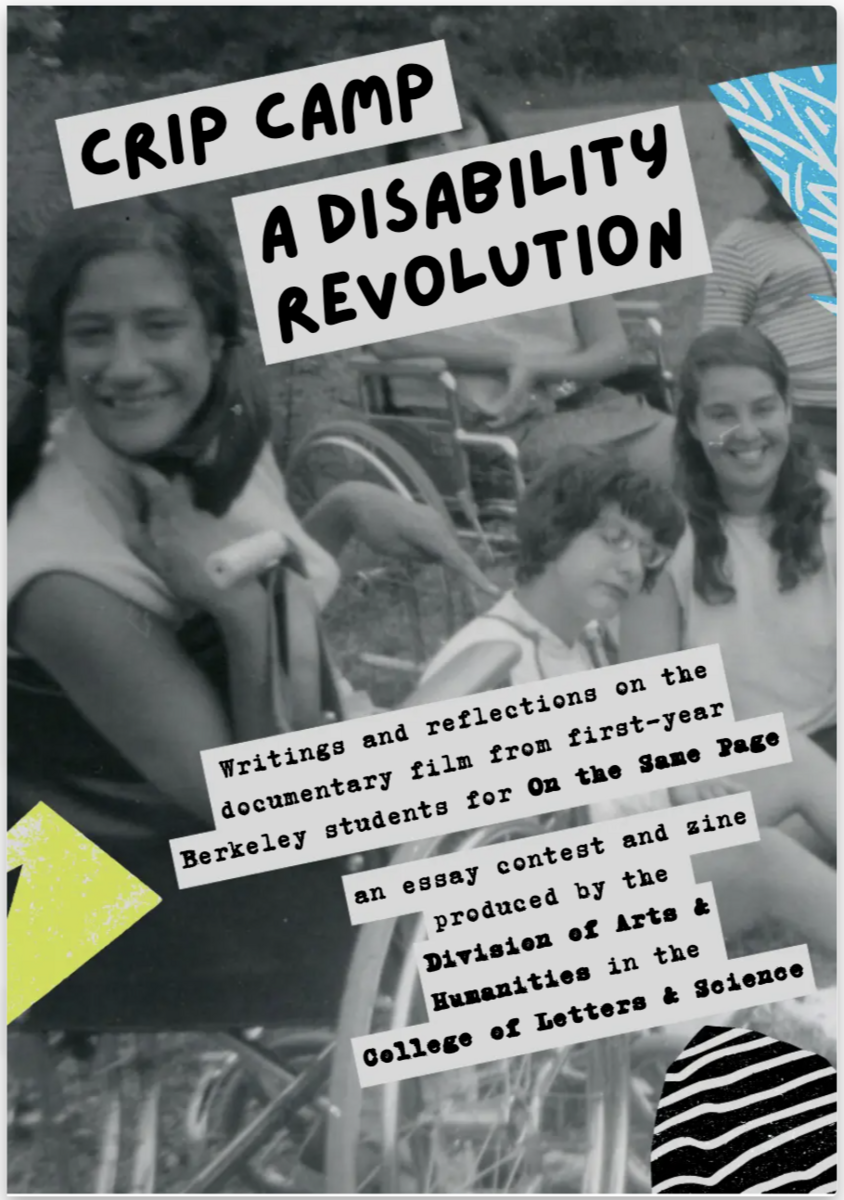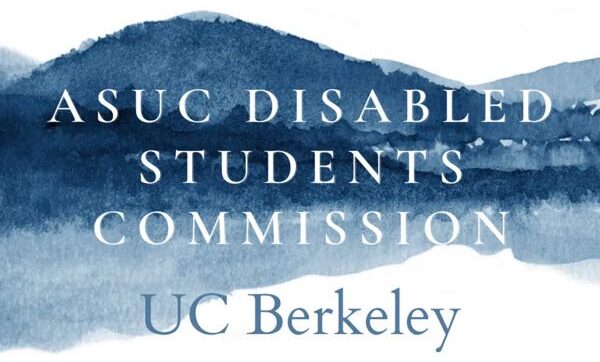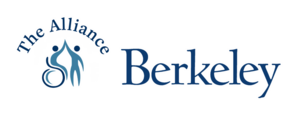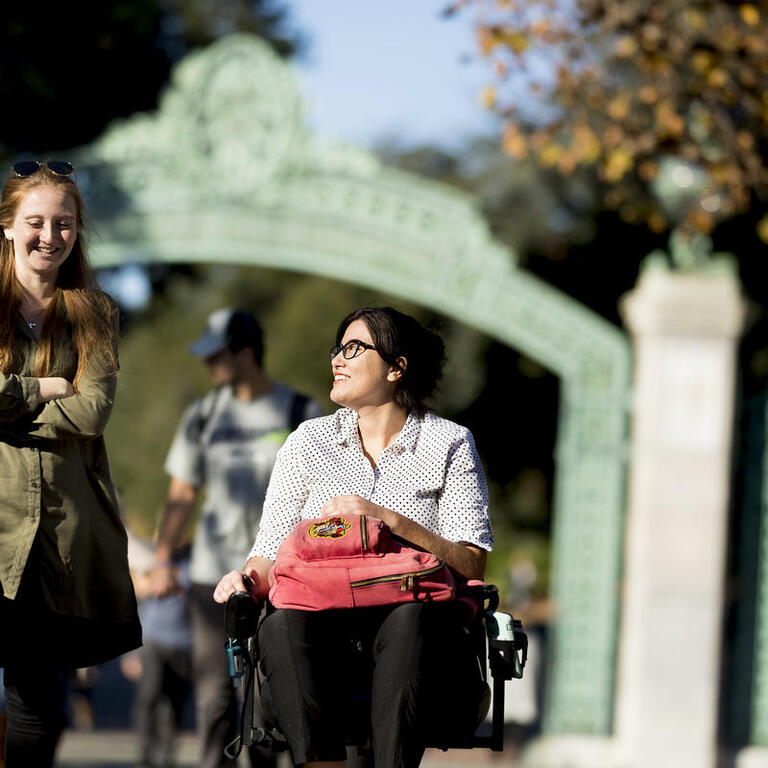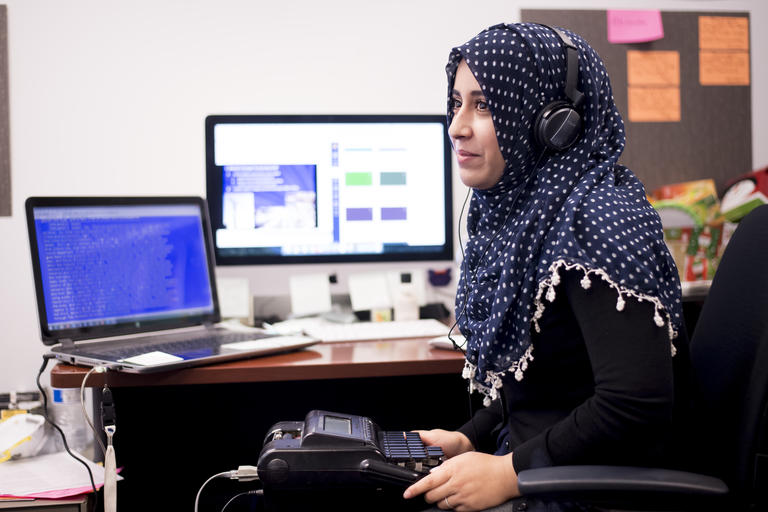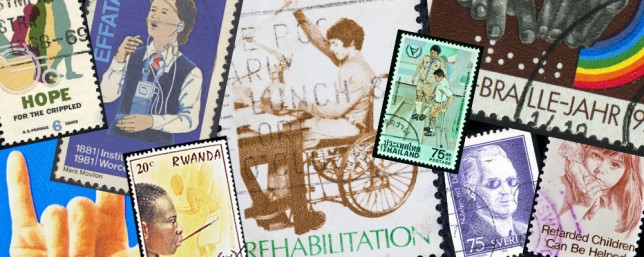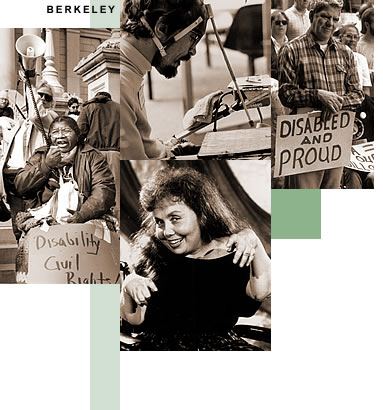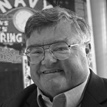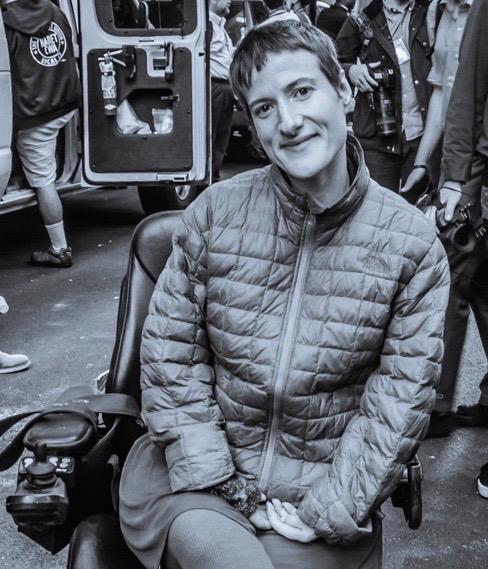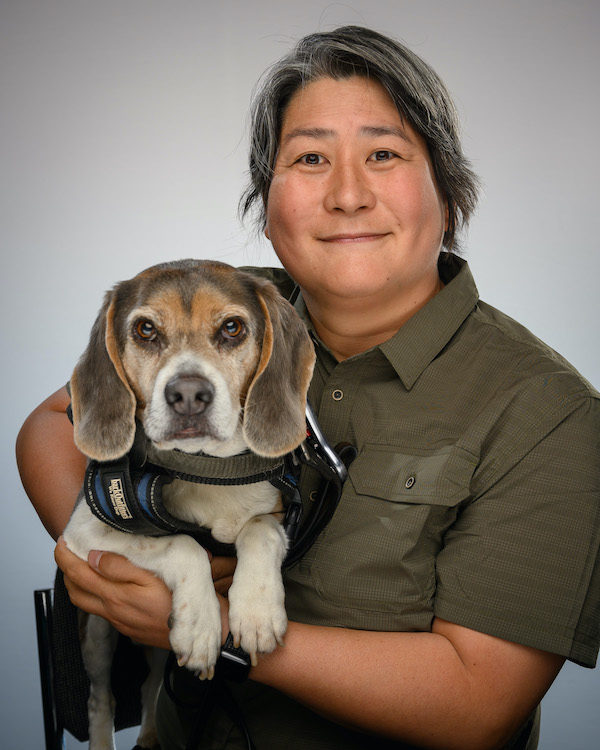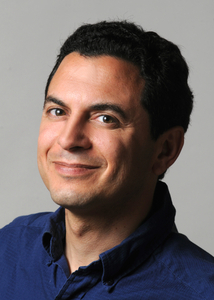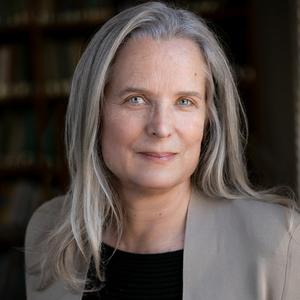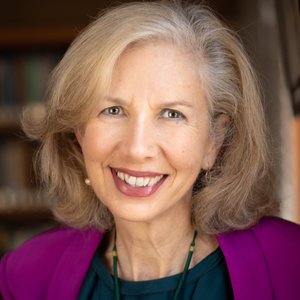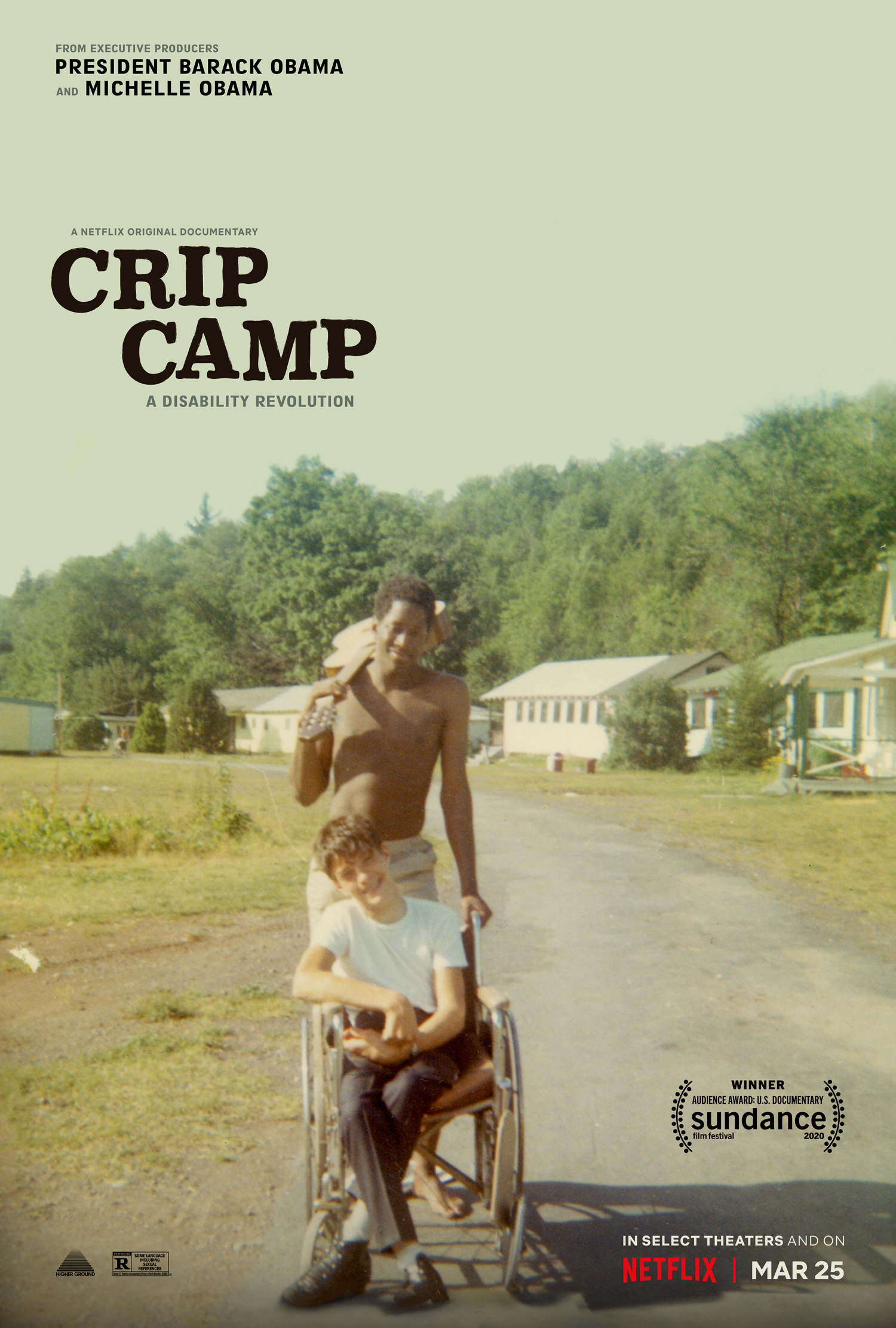
Crip Camp: A Disability Revolution
On the Same Page gives new students (and everyone else) at Berkeley something in common to talk about: a work that has changed the way we view the world. In 2023, that work is the documentary film Crip Camp: A Disability Revolution. Following a group of disabled teenagers from Camp Jened in New York to Berkeley, California in the 1970s, this exuberant documentary chronicles a turning point in the disability rights movement and the fight for accessibility.
Our student reviewers described the documentary as “incredible,” “moving,” “full of fun, joy, and love,” and something that “everyone should see.” One student reviewer appreciated the documentary’s portrayal of “disabled-centered happiness and accomplishments, one of the many ways it changed my perspective.” Crip Camp reminds us of the power of community and activism to change the world.
Nicole Newnham and Jim LeBrecht, Directors/Producers
Nicole Newnham is an Oscar-nominated, Emmy-winning documentary producer and director, five-time Sundance Film Festival alumnus and seven-time Emmy nominee. She most recently directed The Disappearance of Shere Hite, which premiered at the 2023 Sundance Film Festival and will be released by IFC films this fall, and two episodes of the Emmy-nominated ESPN landmark Title-IX series 37 Words. Nicole co-directed and produced the 2021 Academy Award-nominated documentary Crip Camp with Jim LeBrecht. The film won the Sundance Audience Award, the IDA Best Feature Documentary Award, the Independent Spirit Award for Best Documentary Feature, and a Peabody. Nicole has produced two virtual reality films with artist/director Lynette Wallworth that have each won an Emmy for Outstanding New Approaches to Documentary: the breakthrough VR work Collisions (2017) and Awavena (2019). Both films premiered at Sundance New Frontiers and were featured in installation form at the World Economic Forum in Davos. Nicole’s other acclaimed documentaries include, the Emmy-nominated films The Revolutionary Optimists, Sentenced Home and The Rape of Europa. A graduate of Oberlin College and Stanford University’s documentary film graduate program, Nicole lives in Berkeley, CA with her husband, Tom Malarkey, and sons Finn and Blaine.
Jim LeBrecht co-directed and co-produced, with Nicole Newnham, the 2021 Oscar Nominated, 2020 Sundance Film Festival Audience Award and 2021 Peabody Award winning documentary, Crip Camp. He has over 40 years of experience as a film and theater sound designer and mixer, filmmaker, and disability rights activist. Jim is a member of the Academy of Motion Picture Arts and Sciences, the Academy of Television Arts & Sciences. LeBrecht is a co-founder of FWD-Doc and the 1in4 Coalition, two organizations that support people with disabilities in the entertainment business. He is a member of the first cohort of the Disability Futures Fellowship, an initiative of the Ford Foundation and The Andrew W. Mellon Foundation.
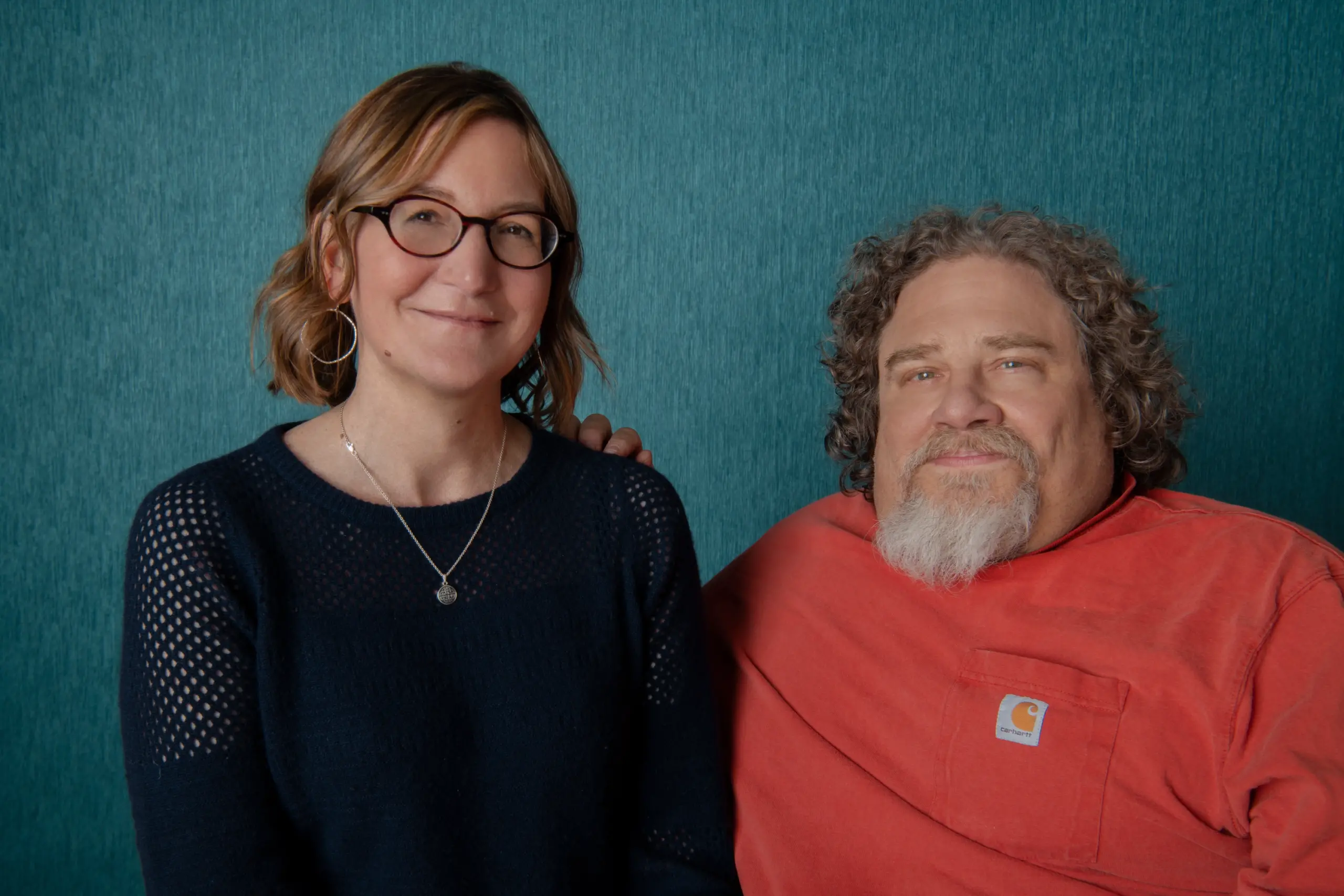
News & Events
Berkeley Voices episode 113: Funky and free-spirited: How a 1970s summer camp started a disability revolution
By Anne Brice, Berkeley News | September 5, 2023
‘This camp changed the world’: New exhibit tracks the rise of the disability rights movement and its ties to UC Berkeley
By Dan Vaccaro, UC Berkeley Library | September 13, 2023
At 20, Berkeley’s Disability Studies shines with renewed energy
By Alexander Rony, Berkeley News | Monday, October 2, 2023
On the Same Page presents: CRIP CAMP Directors and Producers Nicole Newnham and Jim LeBrecht: A Film Screening and Conversation
Thursday, September 14, 2023 | 4-7 p.m. | Zellerbach Hall
Exhibit: A Camp, a Campus, and a Disability Revolution
September 13, 2023 – August 30, 2024
Bernice Layne Brown Gallery – Doe Library
RSVP for a guided tour of the exhibit:
- Tuesday, October 3, 4-5 p.m.
- Wednesday, October 4, 4-5 p.m.
- Tuesday, October 24, 11 a.m.-12 p.m.
- Wednesday, October 25, 9-10 a.m.
This exhibit showcases The Bancroft Library’s renowned Disability Rights and Independent Living Movement project, which comprises over 100 oral histories from leaders, participants, and observers of the disability rights movement in the 1960s and 1970s, supplemented by a rich collection of personal and organizational papers. On display are a brochure and newsletters from Camp Jened, the camp for teenagers with disabilities that fostered community and a sense of agency for many individuals who went on to be activists in the movement. The exhibit also traces the long history of disability activism at UC Berkeley. Blind students and deaf students came to the university in the 19th century, and would go on to become teachers and organizers. Photographs and quotes from interviews with Ed Roberts, the first severely physically disabled student to attend the university (1962) and a seminal figure in the history of the disability rights movement, among other early activists, are also featured; along with the application form submitted by the “Rolling Quads” (as some of the first students with disabilities on campus called themselves) to become an official student group, as well as photographs from the Disabled Students’ Program records.
The 504 Sit-in is represented by memoirs, oral histories, and publications from participants and supporters such as the Black Panthers, the International Association of Machinists, and feminist groups. The exhibit also highlights the many campus units and organizations that comprise and serve the disability community today.
Superfest Disability Film Festival
October 19–22, 2023
Superfest 2023 will occur online Thursday, October 19th through Sunday October 22nd with in-person screenings Saturday October 21st at the Freight and Salvage in Berkeley and Sunday October 22nd at the Asian Art Museum in San Francisco.
Produced by the Paul K. Longmore Institute on Disability.
Disability Cultural Community Center One Year Anniversary Community Gathering
October 25, 2023
4 – 6 p.m.
Disability Cultural Community Center, Hearst Field Annex (HFA) D-25
Come celebrate the one year anniversary of the Disability Cultural Community Center with pizza, karaoke, and community!
How to Build a Movement: Lessons from the 504 Sit-in
November 2, 2023
5 – 6:45 p.m.
Disability Cultural Community Center, Hearst Field Annex D-25
Using the story of the 504 sit-in, our distinguished panel of historians, activists, scholars, and practitioners will reflect on what worked in that historical case, and how we might build from it to new actions that meet the challenges of our moment. The event will begin with a panel discussion and Q&A with Cynthia Chandler, Scot Danforth, and Rosemary McDonnell-Horita, followed by a mini workshop on how to build a movement, led by Rosemary McDonnell-Horita.
Panelists: Cynthia Chandler, Senior Assistant District Attorney and Policy Chief, Alameda County District Attorney’s Office; Scot Danforth, Professor and Assistant Dean of Research, Chapman University; and Rosemary McDonnell-Horita, Disability Inclusion Consultant
Moderator: Scott Saul, Professor of English, UC Berkeley
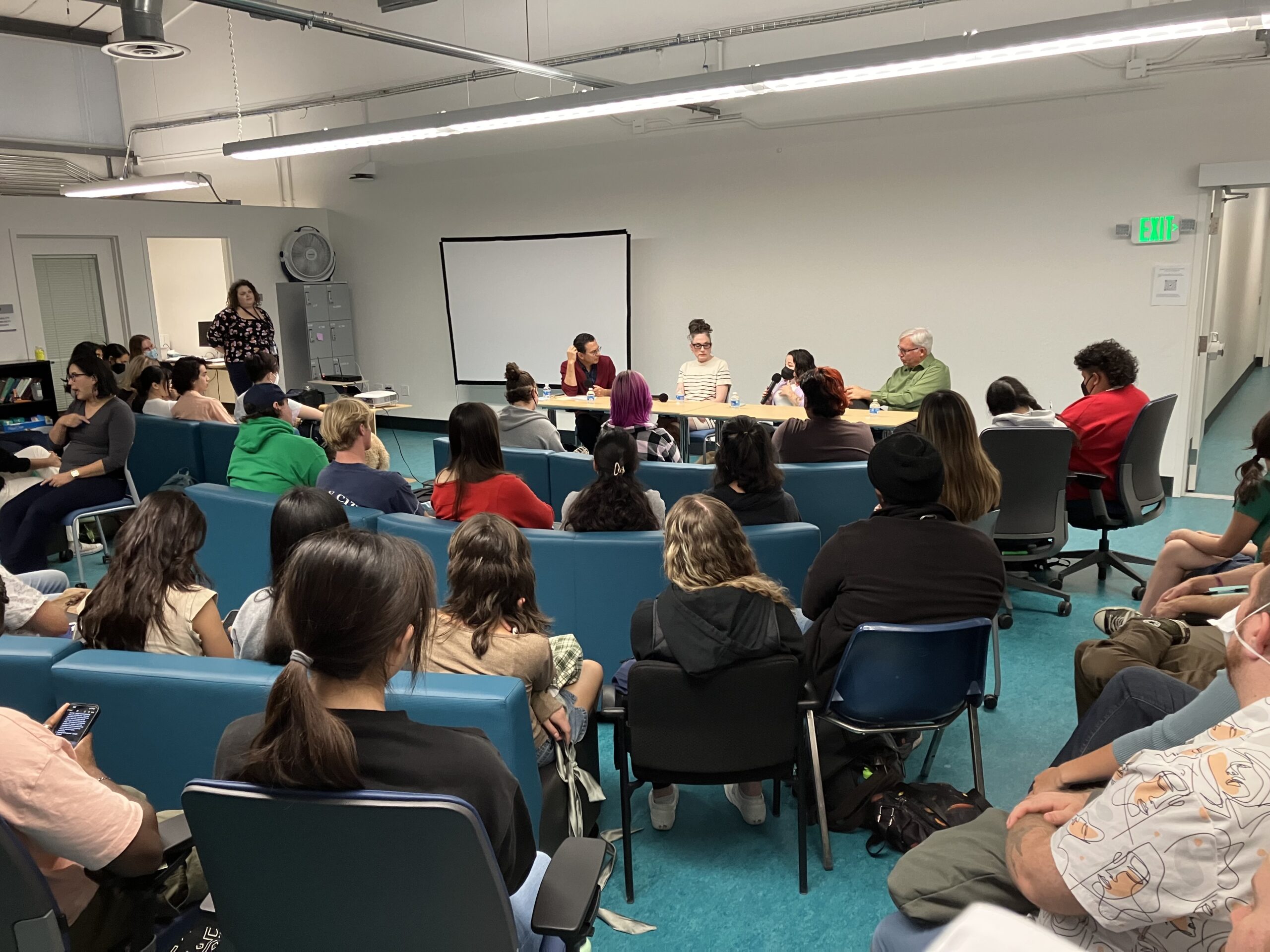
Disability & Blackness: The Role of the Black Panthers in the Disability Rights Movement
November 29, 2023, 4:30 – 6 p.m.
Alumni House, UC Berkeley
One of the hidden aspects of the Black Panther Party in the California Bay Area was its contributions to the nascent disability rights movement in the 1970s. In 1977, the Party famously supported a 26-day occupation of a federal building in San Francisco during the nationwide “504 Movement” demanding the passage of legislation to outlaw ability-based discrimination in federally-financed programs. Join us on Wednesday, November 29 at 4:30pm for an in-person conversation at UC Berkeley around the intersectionalities of Disability and Blackness. The panel will include former Panthers and disability rights activists who will provide background on the deep roots of the Party and Black activism in supporting community health clinics and disabled people in the Black community.
Speakers: Dennis Billups, blind disability rights activist, 504 Movement participant; Leroy Moore, writer, poet, activist, founder of Krip Hop; john a. powell, Director of the Othering & Belonging Institute
Moderator: Karen Nakamura, Disability Studies Chair & Professor of Anthropology, UC Berkeley
This event is part of UC Berkeley’s yearlong On The Same Page Initiative. It is supported by the College of Letters and Science and the Othering & Belonging Institute.
The event will include Cart Captioning. If you require ASL or other accommodations please contact charlotte.okeefe@berkeley.edu with your request at least a week before the event.
Bridging Secularism and Religion: Disabled Muslims in Majority Non-Muslim Societies
February 15, 2024, 9 a.m. – 12:30 p.m.
UC Berkeley School of Law, Goldberg Room
The Islamic approach to disability is shaped primarily by the Qur’an and statements and acts of the Prophet Muhammad, and is influenced by the cultures of diverse Muslim communities. Secular legal construction of disability is typified by laws such as the UN Convention on the Rights of Persons with Disabilities, other human rights treaties and national and local legislation. A key “post-secularist” question is how can an individual integrate religious and secular discourse in mind and action? Scholars, religious leaders, social workers, educators, mental health specialists and advocates will engage with Bay Area peers in two workshop sessions to examine the contradiction and to raise awareness of under-served disabled Muslims living as a minority in majority non-Muslim societies.
Speakers: Kamal Abu-Shamsieh, Leena Badran, Iman Farajallah, Stephen Rosenbaum, and Niveen Rizkalla
Sponsors: Center for Middle Eastern Studies, Othering & Belonging Institute, Helen Diller Institute for Jewish Law and Israel Studies, Interreligious Chaplaincy Program at Graduate Theological Union, Iman Network, Inc.
Crip Camp Essay Contest Winners
In partnership with On the Same Page, the Division of Arts & Humanities sponsored a student essay and video contest. The three winning essays — by Jessica Park, Juana Penalosa, and Victoria Fan — were chosen by Scott Saul, professor of English and committee member for this year’s On the Same Page program. We asked students to stream the documentary, and invited them to respond to one of the following prompts:
- Reflect on the film in a creative way to share its impact with people in your life. Why should they watch it?
- Profile one of the Berkeley changemakers around disability studies and disability rights. The person you profile can be either in the film or a faculty or alum of Berkeley who has made an impact in the community.
- Bring awareness to one of the disability rights outcomes that resulted from the work of the pioneers featured in the film.
Get Involved
ASUC Disabled Students Commission
The Commission is a disability justice advocacy group and a community at UC Berkeley that is led by Disabled students.
Staff Alliance for Disability Access (SADA)
The Staff Alliance for Disability Access (SADA) is a collaborative and supportive campus staff organization that addresses the needs of UC Berkeley staff members with disabilities. “Disabilities” may refer to any combination of physical, psychological, learning, and medical disabilities.
Faculty Coalition for Disability Rights at UC Berkeley
Welcome to the Faculty Coalition for Disability Rights at UC Berkeley, an organization helping to make UC Berkeley a more accessible place for everyone. FCDR advocates for people with disabilities and lobbies the campus administration about particular access concerns that need to be addressed.
Resources
Disability Cultural Community (DCC) Center
UC Berkeley’s Disability Cultural Community Center seeks to create and provide a safe and social space for the Cal disability community to build authentic connections and support one another.
Disabled Students’ Program (DSP)
The Disabled Students’ Program promotes an inclusive environment for students with disabilities. We equip disabled students with appropriate accommodations and services to achieve their individual academic goals. We are dedicated to supporting disabled students and collaborating with the campus community to remove barriers to educational access and embrace the University’s values of equity and inclusion. We believe that an accessible environment universally benefits everyone.
Disabilities Studies Minor
The Disability Studies minor provides a space to explore questions such as these: How has disability been defined in various historical moments, in various cultures and eras? While impairment has unquestionably been a frequent experience throughout human history, has disability—the construction of impairment as a generic social category—been a historical constant, or is it a modern invention? What social ideologies, cultural systems, and societal arrangements have shaped the meaning and experience of disability? How has disability been defined or represented in cultural and artistic productions, public laws and policies, modern professional practices, and everyday life?
Disability Studies Cluster, Othering & Belonging Institute
The Disability Studies Cluster aims to support theoretical and applied research, policy analysis, teaching and community partnership on disability issues at local, national and global levels.
Disability Access & Compliance (DAC)
Disability Access & Compliance connects the UC Berkeley community with the resources, training, evaluative tools, and services that support equal access to students, staff, faculty, and visitors with disabilities to participate in university-sponsored non-course-related programs or activities.
Disability Justice Hub
The Division for Equity & Inclusion is thrilled to introduce the soft launch of the Disability Justice Hub, a crucial resource in our ongoing effort to create a more just and inclusive campus environment. We look forward to continuing to collaborate and partner with community members to further develop the hub and make it an even more valuable tool.
Bancroft Library Oral History Center – Disability Rights and Independent Living Movement
The Disability Rights and Independent Living Movement Project was launched in 1996 to capture the history of a remarkable movement by people with disabilities to win legally defined civil rights and control over their own lives. Since then, more than 100 oral histories with leaders, participants, and observers of the movement in the 1960s and 1970s have preserved the living memory of the movement. A rich collection of personal papers and the records of key disability organizations join the oral histories in the Bancroft Library at the University of California, Berkeley, comprising an in-depth research resource for the study of a contemporary social movement which has changed the social, cultural, and legal landscape of the nation.
Crip Camp Curriculum
Crip Camp shared with insight, clarity, humor, and beauty the experiences of one group of disabled young people and their journey to activism and adulthood, and in doing so, provides an opportunity for all to delve into the rich and complicated history of disability activism, culture, and history. The goal of this curriculum is to extend the knowledge and understanding of disability and of disabled people offered in the film Crip Camp.
Crip Camp Education Materials
Crip Camp is about the emotional experience of finding community and oneself for the first time and the power of realizing that a better life is possible through social change. Below are resources that provide an overview of the history and context of the disability rights movement as well as a step-by-step framework for leading and moderating a discussion.
Crip Camp Educator Discussion Guide
This guide provides a framework for fostering discussion, critical thinking, and action after viewing Crip Camp. It is our hope that viewing Crip Camp and engaging in a critical discussion of the film will advance understanding and interest in disability rights and disability justice for yourself and the communities you work in.
UC Berkeley Library Research Guide for Disability Studies
This website will help you find the best library databases, search tools, and reference sources for Disability Studies. Critical Disability Studies is an interdisciplinary and transdisciplinary field that approaches disability as a social and cultural category, a lived experience, and an analytical frame. It thus expands understandings of disability and people with disabilities across diverse geographical and temporal contexts. According to the Encyclopedia of American Disability History, “disability is not a characteristic that exists in the person so defined, but a construct that finds its meaning in a social and cultural context.”
Guidelines for Writing About People With Disabilities (ADA National Network)
Words are powerful. The words you use and the way you portray individuals with disabilities matters. This factsheet provides guidelines for portraying individuals with disabilities in a respectful and balanced way by using language that is accurate, neutral and objective. Content was developed by the ADA Knowledge Translation Center, and is based on professional consensus of ADA experts and the ADA National Network.
Disability Language Style Guide (National Center on Disability and Journalism)
As language, perceptions and social mores change rapidly, it is becoming increasingly difficult for journalists and other communicators to figure out how to refer to people with disabilities. Even the term “disability” is not universally accepted. This style guide, which covers dozens of words and terms commonly used when referring to disability, can help. The guide was developed by the National Center on Disability and Journalism at Arizona State University’s Walter Cronkite School of Journalism and Mass Communication and was last updated in the summer of 2021.
Watch This Year's Selection
Watch This Year's Selection – With Audio Description
To access the Crip Camp Transcript, follow this link.
Official Trailer
Official Trailer with Audio Description
Courses
Fall 2023
- ANTHRO 189: Disability Ethnography And Design, Karen Nakamura
- ANTHRO 115: Introduction To Medical Anthropology, Corinne P Hayden
- ART 118: Advanced Drawing: Remixing The Figure, Indira Martina Morre
- COLWRIT R4A 006: Reading and Composition– Living on the Edge of Life and Death, Michelle Baptiste
- COLWRIT R4A 008: Reading and Composition – Living on the Edge of Life and Death, Michelle Baptiste
- XENGLIS R1A 009: Reading and Composition – Voices from the Margins, Cathleen Small
- XENGLIS R1A 010: Reading and Composition – Voices from the Margins, Cathleen Small
- EDUC 39D: Neurodiversity: Scholarship, Politics And Culture, Laura Sterponi
- ENGLISH 100: Memoir And Memory, Elizabeth Abel
- ENGLISH 174: Literature And History: The Seventies, Scott Andrew Saul
- GWS 129: Bodies And Boundaries, Barbara A Barnes
- GWS 130AC: Gender, Race, Nation, And Health, Brooke Lober
- LEGALST 137: Comparative Equality Law, Lindsay Elizabeth Harris
- LEGALST 159: Law & Sexuality, Sonia Katyal
- LINGUIS 1A: American Sign Language I, Sherry L Hicks
- PSYCH 22: Neurons in Context, Linda Wilbrecht
- PSYCH 131: Developmental Psychopathology, Qing Zhou
- SOCIOL C115: Sociology Of Health And Medicine, Marina Caitlin M Daniel
- SOCIOL 169C 002: Cross-Cultural Communications, Marina Romani
- SOCIOL 190 002: Reproductive Health, Politics, And Inequalities, Eliza Brown
- THEATER R1A 003: Performance: Writing and Research: Acts of Solidarity, Chelsea M Gregory
- UGIS 110: Introduction To Disability Studies, Emily Nusbaum
Spring 2024
- AMERSTD H110: Honors Seminar: Special Topics in American Studies: Remains: The Making and Unmaking of the American Body, Sarah Gold McBride
- ART 118: Advanced Drawing: Remixing The Figure, Indira Martina Morre
- CHICANO 176: Chicanos and Health Care, Lorena Oropeza
- CYPLAN 117AC: Urban & Community Health, Jason Corburn
- COLWRIT R4A 002: Reading and Composition: Environmental and Health Justice, Angela Hume
- COLWRIT R4A 11: Reading and Composition: Environmental and Health Justice, Angela Hume
- ECON 157: Health Economics, Ryan D Edwards
- EDUC 188F: Language, Race, and Power in Education, Patricia Baquedano Lopez
- ESPM 149: Bodies, Difference, and the Environment, Sunaura Taylor
- ESPM C254: Ethnic and Cultural Diversity in Health Status, Valerie Black
- GWS 100AC: Women in American Culture, Barbara A Barnes
- LDARCH 140: Social and Psychological Factors in Open Space Design, Anna Livia Brand
- LINGUIS 1B 001: American Sign Language II, Sherry L Hicks
- LINGUIS 1B 002: American Sign Language II, Sherry L Hicks
- PB HLTH 116: Seminar on Social, Political, and Ethical Issues in Health and Medicine, Darlene D Francis
- PB HLTH 126: Health Economics and Public Policy, Brent Fulton
- PB HLTH 130: Advanced Health Policy, Robin L Flagg
- PB HLTH 150E: Introduction to Community Health and Human Development, Jason Corburn
- PBHLTH C160 / ESPM C167: Environmental Health and Development, Kurt Spreyer
- PSYCH 131: Developmental Psychopathology, Stephen P Hinshaw
- SOC WEL 210C: Aging Processes, Laurent Reyes
- SOCIOL 113: Sociology of Education, Peter Hurtubise
- SOCIOL C115: Sociology of Health and Medicine, Jennifer Templeton Dunn
- UGIS 112: Women and Disability, Anne S Finger
Faculty Planning Committee
Faculty with expertise in the themes of this year’s selection, from a wide range of disciplines, plan engaging events and activities for students throughout the academic year. In previous years, the faculty planning committee has organized panels, roundtables, film screenings, concerts, faculty dialogues, karaoke nights, contests, and more. If you would like to join our efforts, please email Aileen Liu.
Frederick Collignon
Professor Emeritus of City & Regional Planning
Sunaura Taylor
Assistant Professor of Environmental Science, Policy, & Management
Karen Nakamura
Robert and Colleen Haas Distinguished Chair
in Disability Studies and Professor of Anthropology
Scott Saul
Professor of English
Susan Schweik
Professor Emerita of English
Celeste Langan
Associate Professor of English
Acknowledgments
Selection Committee
Anne Baranger, Chemistry
Cori Hayden, Anthropology
Jake Kosek, Geography
Eric Ma, Physics
Poulomi Saha, English
Aileen Liu, Chair, Director of Curricular Engagement Initiatives
Student Reviewers
Abrar Rahman, Alexandra Zega, Amy Tu, Carina Kim, Christian Aleman, Citlali Diaz, Esme Cohen, Fe Su, Helen Berg, Hyunsoo Choi, Kyle Diarmit, Lenci Ni, Marina Zhao, Matthew Rowe, McKinley Keys, Mei Johnson, Michael Kamenis, Nichelle Wong, Niki Ebrahimnejad, Sofia McNamara, Sydney Reyes, and Vanessa Luna
Volunteers
Keila Diehl, Caitlin LaFleur, Jennifer Monahan, Benjamin Paul, Michelle Phillips, Alexander Rony, and Bibi Zaragoza
Special thanks to Sonya Lee, Belinda White, Dave Murray, and student assistants Bridget Bernet and Patty Perez
